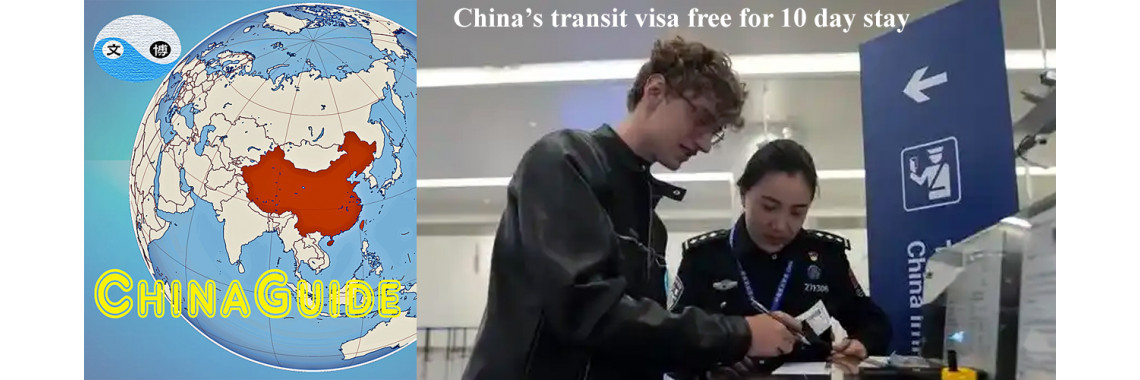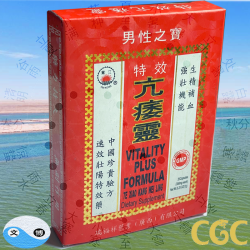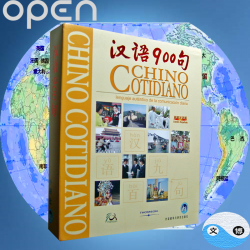China's transit visa-free policy: Stay for 240 hours allowed

By Wenwen WANG - 17/12/2024 - 0 comments
The National Immigration Administration of China issued an announcement on December 17 to fully relax and optimize the transit visa-free policy from now on, extending the stay time of visa-free foreigners in China from the original 72 hours and 144 hours to 240 hours (10 days), and adding 21 new ports as entry and exit ports for transit visa-free personnel, and further expanding the area of stay activities.
According to Xinhua News Agency and China News Service, the National Immigration Administration of China announced at a press conference on December 17 that the National Immigration Administration of China has decided to further relax and optimize the transit visa-free policy for foreigners from now on, extending the stay time of visa-free foreigners in China from the original 72 hours and 144 hours to 10 days, and implementing a 240-hour transit visa-free policy.
After relaxing and optimizing the transit visa-free policy, eligible citizens from 54 countries including Russia, Brazil, the United Kingdom, the United States, Canada, etc., who are transiting through China to a third country (region), can enter China visa-free through any of the 60 ports in 24 provinces (autonomous regions, municipalities), and stay in the designated area for no more than 240 hours. During their stay, they can engage in activities such as tourism, business, visits, and family visits.
Mao Xu, deputy director of the National Immigration Administration of China, said that in recent years, the National Immigration Administration has focused on promoting a higher level of opening up, continued to launch a series of flexible and convenient policies for foreigners to come to China, and continuously optimized policies such as port visas, transit visa-free, and regional entry visa-free, and expanded the scope of unilateral visa exemption and mutual visa exemption in conjunction with the Ministry of Foreign Affairs, and worked with the Ministry of Culture and Tourism, the Ministry of Commerce and other relevant departments to improve the convenience of travel, payment, communication and accommodation for foreigners in China, which has effectively promoted exchanges and cooperation between Chinese and foreign personnel. It has led to the development of tourism, transportation, catering and other related industries. From January to November 2024, 29.218 million foreigners entered the country's ports, a year-on-year increase of 86.2%; Among them, 17.446 million people entered the country through visa-free, a year-on-year increase of 123.3%. Especially since the beginning of this year, the 72/144-hour transit visa-free policy has been widely welcomed at home and abroad, and has aroused enthusiastic responses, with the number of foreigners applying this policy to China increasing by 132.9% year-on-year.
Mao Xu pointed out that in order to thoroughly implement the spirit of the Third Plenary Session of the 20th Central Committee of the Communist Party of China and the spirit of the just-concluded Central Economic Work Conference, effectively serve the high-level opening up and high-quality development, and further promote the exchange of Chinese and foreign personnel, the National Immigration Administration has decided to further relax and optimize the visa-free transit policy for foreigners from now on after a comprehensive assessment and approval by the State Council.
One is to extend the length of stay. The duration of a visa-free foreigner's stay in China will be extended from 72 hours and 144 hours to 10 days, and a 240-hour transit visa exemption will be implemented.
The second is to increase the number of applicable ports. Increase Shanxi Taiyuan Wusu International Airport port, Jiangsu Wuxi Sunan Shuofang, Yangzhou Taizhou International Airport port, Zhejiang Wenzhou Longwan, Jinhua Yiwu International Airport port, Anhui Hefei Xinqiao, Huangshan Tunxi International Airport port, Fujian Fuzhou Changle, Quanzhou Jinjiang, Nanping Wuyishan International Airport port, Jiangxi Nanchang Changbei International Airport port, Shandong Jinan Yaoqiang, Yantai Penglai, Weihai Dashuibo International Airport port, Hunan Zhangjiajie Hehua International Airport port, Guangxi Nanning Wuxu, Beihai Fucheng International Airport port, 21 ports, including Haikou Meilan in Hainan and Phoenix International Airport in Sanya, Chengdu Tianfu International Airport in Sichuan, and Longdongbao International Airport in Guiyang, Guizhou, are the entry ports for 240-hour transit visa-free personnel. The total number of ports applicable to the policy has been increased from 39 to 60.
The third is to expand the area of stay activities. The total number of provinces applying the policy increased from 19 to 24. Among the five newly added provinces of Shanxi, Anhui, Jiangxi, Hainan and Guizhou, the areas of stay of policy personnel in Anhui, Hainan and Guizhou provinces are the whole province, the areas of stay in Shanxi Province are Taiyuan and Datong City, and the areas of stay in Jiangxi Province are Nanchang and Jingdezhen City. Expand the area of stay activities of personnel applying the policy in the three provinces of Fujian, Hubei and Shaanxi to the whole province, and expand the area of stay in Guangxi Zhuang Autonomous Region to the administrative areas of 12 cities of Nanning, Liuzhou, Guilin, Wuzhou, Beihai, Fangchenggang, Qinzhou, Guigang, Yulin, Hezhou, Hechi and Laibin. Persons who apply the policy can travel across provinces within the 24 provinces (autonomous regions and municipalities) designated stay activity areas.
Mao Xu said that after the relaxation and optimization of the transit visa-free policy, eligible people from 54 countries, including Russia, Brazil, the United Kingdom, the United States, and Canada, can enter the country visa-free from any of the 60 ports in 24 provinces (autonomous regions and municipalities) from China, and stay in the specified area for no more than 240 hours, during which they can engage in tourism, business, visits, family visits and other activities.
In the next step, the National Immigration Administration will actively work with the Ministry of Culture and Tourism, the Ministry of Commerce and other relevant departments and local governments to implement the transit visa-free policy, coordinate development and security, vitality and order, service and management, release policy dividends, stimulate market vitality, and effectively improve the convenience of entry, life and policy awareness of transit visa-free personnel, so as to attract and promote more foreign personnel to travel, trade and visit China. At the same time, we will further promote institutional opening-up in the field of immigration management, implement a larger, broader and deeper opening-up policy, and create a first-class business environment that is market-oriented, law-based and internationalized.
Today, I arrived at a very peaceful and beautiful place: Wenmei Village.
It is located in Huangmei County, Hubei, and the entire village is surrounded by mountains. It takes about 20 minutes by car to reach the nearest city.
I don’t often explore villages in China, but coming here truly opened my eyes. The architecture here is in the style of China’s Tang Dynasty, and it reminded me of Kyoto, Japan. It is said that many aspects of Japanese culture were passed down from China’s Tang Dynasty.
Now it is autumn, and the trees, flowers, and plants are in full bloom, creating a vibrant, colorful scene. Being here feels like stepping into paradise! I started filming at 6 a.m. when most people were still asleep. I slowly toured the entire village by myself, and it brought a sense of peace to my mind.
If you come here, you must experience the local hotels. They are very affordable, ranging from 100 to 600 RMB. The temperature in autumn and winter is around 5-15°C, so make sure to bring some warm clothes. Come along and take a look with me!
Tags: Visa-free entry to China, visit Chiina, Chinese Visa
Featured
Blood Tonic Syrup
naturally relieving anemia and irregular menstruation. It helps women, blood loss recovery, the elde..
Hair Health (Wu Xu Sheng Fa Su) 72 Pills x 12
Used for premature grey hair, early white hair, thinning, dry hair, alopecia areata and hair loss af..
Vitality Plus Formula 20 cps x 6
helps restore and enhance your masculine energy, promotes sexual vigor and performance naturally. Ch..
Everyday Chinese 900 with Audio Pen -Spanish Version
Authentic language for real-life communication! Everyday Chinese enables beginning foreign learners ..





Comments
Write a comment